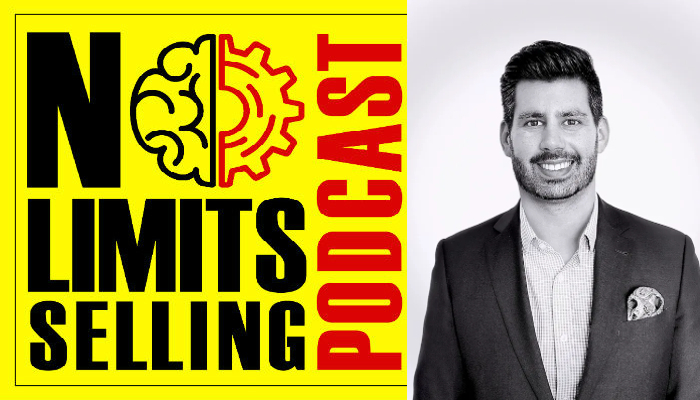How to Build a High Performance Real Estate Team
On Episode 215 of The No Limits Selling Podcast, we have Mitch Parker, Vice President, Sales & Marketing | Forbes Council Member.
Mitch is an energetic and passionate real estate marketing, sales, and investment expert who’s been featured and quoted by top media outlets across Canada and the US, such as Canada Am, CTV Television, Sirius XM, and Huffington Post he currently sits on the Forbes Business Development Council.
With a degree in business and a specialization in Finance, he entered the real estate industry in 2006 as an investor, purchasing student rental properties near universities and colleges in Ottawa. Those purchases ultimately led him to obtain a real estate license for both his transactions and to help teach others how to build wealth through real estate.
After a decade of selling on the client side, he transitioned to working with developers in 2017, assisting in the sales and marketing of large-scale residential developments. From successfully selling out a unique senior housing development marketed as a passive, fully managed investment to getting stalled developments back on track to hit critical sales milestones, he has quickly made a large impact in the industry by utilizing and expanding his wide range of skills.

Contact Mitch:
[EDITOR’S NOTE: This podcast is sponsored by No Limits Selling. It is a fun, fast-paced podcast that delivers hard-fought business advice that you can implement today to improve your sales and performance]
Interested In Our Real Estate Coaching Services? Explore Our Website: Link
Feeling Not Well Today? You Can Use Our Mindset Boosters App To amp Up Your Mood: Link
Find us on Social Media:
LinkedIn | Facebook community | Instagram
Like what do you listen to? Subscribe to our podcast!
Ready to become fearless? We can help you become fearless in 60 days so you accomplish more in your career Schedule A 15 min Call with Umar
Summary
Introduction and Background
The podcast begins with the host, Umar Hameed, introducing Mitch Parker, a passionate real estate marketing, sales, and investment expert. Mitch has been involved in the real estate industry for 17 years. He started as an investor, obtained a real estate license to buy his properties, and began teaching others how to build wealth through real estate.
Balancing High and Low Performers in a Team
Mitch discusses the challenges of managing a team with varying performance levels. He emphasizes the importance of systems, communication, and adaptability. He explains how his team has broken down training into four different parts, with each agent always in one of those four quadrants. This approach makes it easier to understand what material will be covered and how to move someone from one quadrant to another.
Understanding What Drives Agents
Mitch and Umar discuss what motivates real estate agents. While many agents initially state that their goal is to earn a million dollars a year, Mitch uses a method of scaling down to find out what truly motivates them. He asks if they would be happy with lower amounts until he finds their actual number. He also notes that many agents are driven by money and recognition.
Transitioning from Conversation to Sale
Mitch talks about the struggle many agents face in transitioning from having a conversation with a client to making a sale. He suggests normalizing the process for the client and explaining that it's a standard part of the process. This approach can make it easier to ask for what you want, such as an appointment at the sales center or a sale.
Conclusion
In this insightful podcast, Mitch Parker, a seasoned real estate expert, shares his experiences and strategies in the industry. He discusses the importance of systems, communication, and adaptability in managing a team with varying performance levels. He also delves into understanding what truly motivates real estate agents, highlighting that while many may initially aim for a high financial goal, their true motivation often lies in a lower, more achievable figure. Furthermore, Mitch provides valuable advice on transitioning from client conversations to making sales, emphasizing the need to normalize the process for the client. The podcast serves as a valuable resource for anyone in the real estate industry, offering a deeper understanding of team management, agent motivation, and effective sales strategies.
Questions & Answers
Who is Mitch Parker in the real estate industry?
What is Mitch Parker's approach to managing a real estate team?
How does Mitch Parker understand what motivates real estate agents?
What is Mitch Parker's advice on transitioning from client conversations to making sales?
How does Mitch Parker unlock the true motivations of real estate agents?
Don’t miss this opportunity to transform your real estate career with one-on-one coaching. As an experienced real estate coach, I, Umar Hameed, am dedicated to helping you unlock your full potential and achieve your real estate goals. To learn more about who am I and my clients ↓
If you’re ready to take the next step, book an appointment with me today and begin your journey toward success in the real estate industry.
